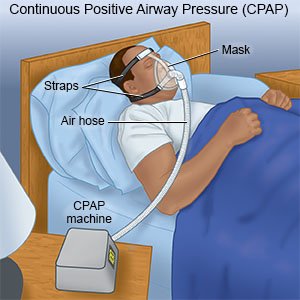Sleep Study
Medically reviewed by Drugs.com. Last updated on Apr 2, 2024.
What do I need to know about a sleep study?
A sleep study is a test to learn if you have a sleep-related breathing disorder (SRBD). A common example is obstructive sleep apnea. You may need a sleep study if you wake up often during the night, sleepwalk, or have night terrors. Seizures in your sleep, a movement or nerve disorder, or narcolepsy are also reasons for the test. A sleep study may also be called a polysomnography (PSG).
How do I prepare for a sleep study?
Healthcare providers will put electrodes on you. These are sticky pads connected to wires. They record snoring, heartbeat, oxygen levels, and body movements while you are asleep. A sleep study may also be done at your home. Healthcare providers will tell you how to do a home sleep study. You may need to go to a sleep center before your home test to have electrodes put on. You will be given a portable monitor to take home for this test.
What will happen during the sleep study?
Your sleep study may be done as a single night or split night test. For a single night test, your sleep will be monitored by healthcare providers all night. Split night testing is done if you stop breathing at times during the first few hours of the test. Your healthcare provider may have you use a breathing machine called a CPAP for the rest of your test. CPAP is continuous positive airway pressure. The CPAP machine blows a gentle stream of air into a mask placed over your nose and mouth. The split night test with CPAP may help your healthcare provider know if this treatment will help your SRBD.
 |
What will happen after the sleep study?
You may be told when to follow up with your healthcare provider to get the results of your PSG. You may need more PSG tests to see if treatment for your SRBD is working.
Care Agreement
You have the right to help plan your care. Learn about your health condition and how it may be treated. Discuss treatment options with your healthcare providers to decide what care you want to receive. You always have the right to refuse treatment. The above information is an educational aid only. It is not intended as medical advice for individual conditions or treatments. Talk to your doctor, nurse or pharmacist before following any medical regimen to see if it is safe and effective for you.© Copyright Merative 2024 Information is for End User's use only and may not be sold, redistributed or otherwise used for commercial purposes.
Further information
Always consult your healthcare provider to ensure the information displayed on this page applies to your personal circumstances.
